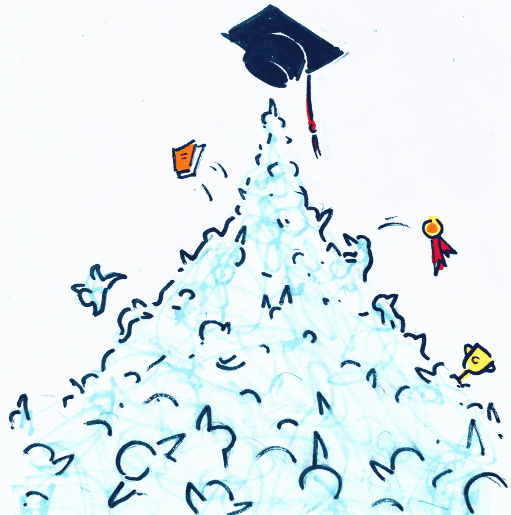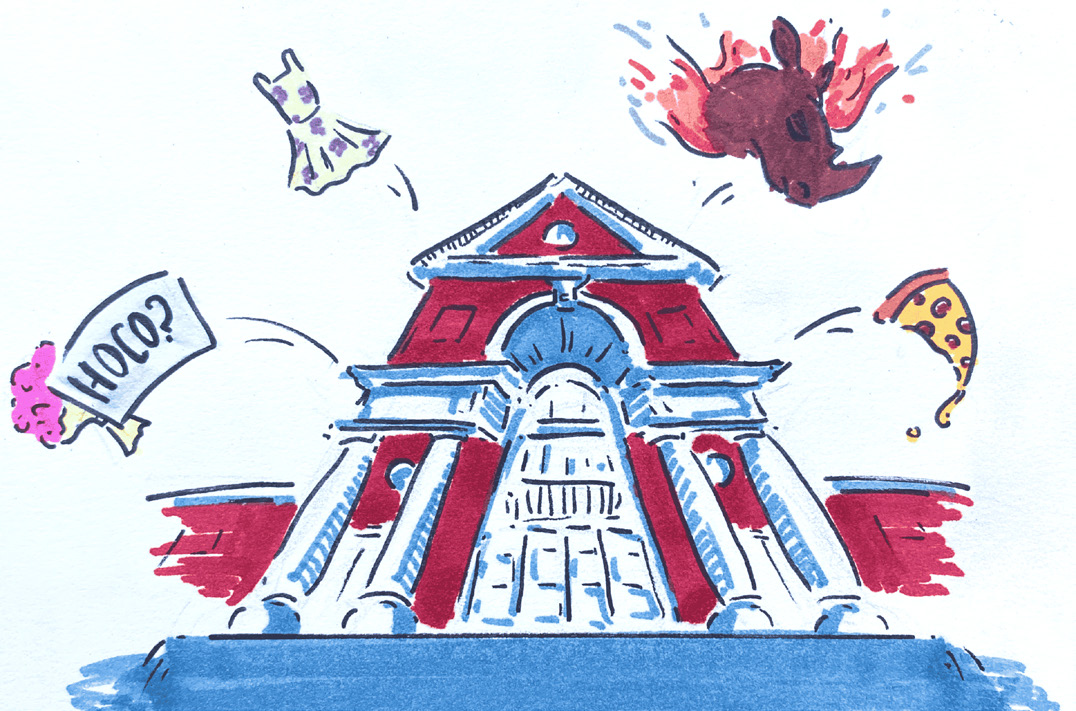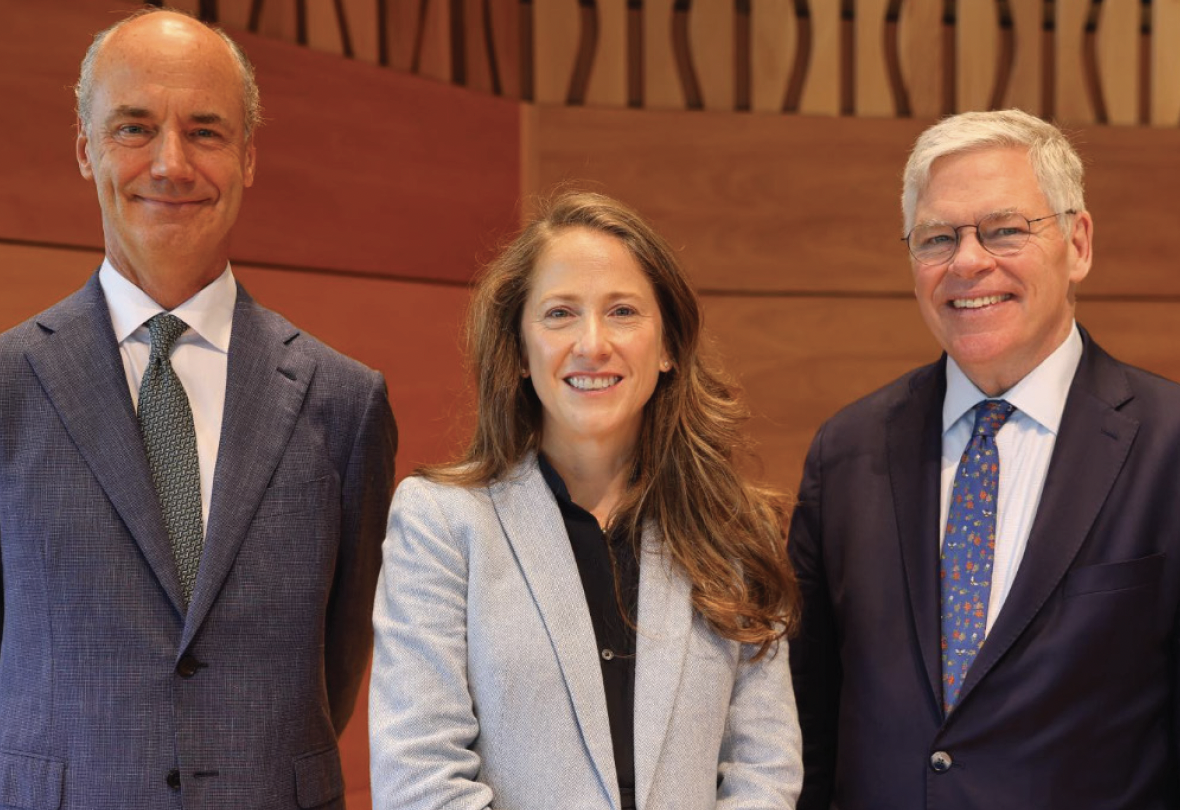Daniel Zhang ’26
If students were given the chance to voice their opinions about the end-of-semester exams, you would hear a resounding scream of resentment. Although exams cause stress, however, their existence is inherently tied to the very purpose of school: learning.
While it may seem counterintuitive, the fact that Hotchkiss is such a stressful environment makes midterm and final exams all the more important. Cumulative tests and projects force students to revisit material they may have overlooked in the frantic cramming, which is how we prepare for most of our unit assessments.
With cumulative exams, students inadvertently engage in a concept called spaced repetition, a proven method for reinforcing concepts and embedding them into our long-term memory. “Without exams, most of us would cram and forget,” said Holden Burns ’25. “Having to revisit and relearn everything we’ve covered ensures that the material actually sticks.”
A common critique of sit-down exams is that they don’t accurately reflect real-world challenges. After all, how often will we have to write essays, solve math problems, or model plant cells under time pressure?
However, these skeptics underestimate the utility of exams. “Final exams are practice for high-pressure situations,” Burns said. “They’re not just about what you know, but how you perform under stress, which is a skill you’ll need for things like job interviews or meeting project deadlines.” During exams, we are able to practice focused thinking and problem-solving required in moments of pressure we will face in the future.
Another valuable element of the assessment period is the reading day. This stretch of time—along with the week around it—is a good way of teaching students to manage their time effectively. With multiple days free, we can learn to utilize resources around us like the TLC while having to structure and focus on multiple commitments at once, forcing us to practice planning ahead of time.
Finals also provide a degree of uniformity to our academic lives. With the various sections and teachers of gradewide classes like biology, English, or math, all students rarely get to take exams under the same set of circumstances. This helps correct for potentially inequitable disparities between students’ experiences.
I’ll admit: exams are a source of dread for a lot of us (me included). But they are also a testament to the school’s commitment to providing us with a good education. The skills we pick up in preparation for—and during—exams prepare us for the future, which aligns itself with the very purpose of our years here at this school.
Tate Collins ’27
’Tis the season, everybody! Snow, hot cocoa, Christmas carols, Hallmark movies, family time—it’s all finally here. But before we can kick back and enjoy the holly-jolly holidays, we must first suffer through a period that not even Michael Bublé’s baritone can save us from: exam week.
With midterms beginning, it feels like you can’t go more than a couple of feet without hearing someone say, “I’m swamped,” “Midterms are the worst,” or “I am SO stressed out.” In fact, it is by no means an overstatement to claim that virtually every student hates exams. So, why do we still have them?
If you ask me, we shouldn’t. According to the evidence, exams are actually bad for student performance. Researchers at the University of Cambridge found that while a moderate amount of stress can be motivating, too much of it can hinder memory and academic outcomes.
At a school like ours, the exam period is accompanied by an inevitable increase in the quantity and intensity of our workloads— and, as a result, an increase in our stress. The same study cited above found that students’ stress levels skyrocketed in the 3 days leading up to exam periods, which, honestly, is relatable: having six major assessments due within the span of four days is enough to freak out any person. Our own stress levels presumably increase in the same way as the students in the study—meaning that exams definitely result in worsened memory and academic performance.
Exams are meant to measure student comprehension of material. However, the overly stressful nature of exam period has resulted in exams no longer being an accurate measure of student competency. On top of that, this year’s exam period is a whole day shorter than usual. This means that students can expect to have multiple assessments a day, inhibiting them from focusing on one assignment at a time.
Though exams certainly augment stress levels, they fail to promote academic growth. Exams are inconvenient for teachers, too. Instructors have to grade all of their students’ assessments in less than a week. For the latest exams, teachers only have two whole days to return scores. This crunchtime means that teachers cannot offer the same amount of insight that they usually would. Furthermore, it is impossible to offer rewrites or corrections on exams because of this grading window. The lack of feedback and opportunities for revision impedes the ability to learn from your mistakes.
To prevent an excess of work and stress, exams should be redistributed more evenly throughout the year. The primary issue with our current policy is that every class amps up their workload simultaneously; to solve this, the school should eliminate the exam period and allow teachers to choose for themselves when to give out major assessments. Not only would this reduce the stressful nature of exams, but it would also grant teachers more fl exibility on how to run their courses.











